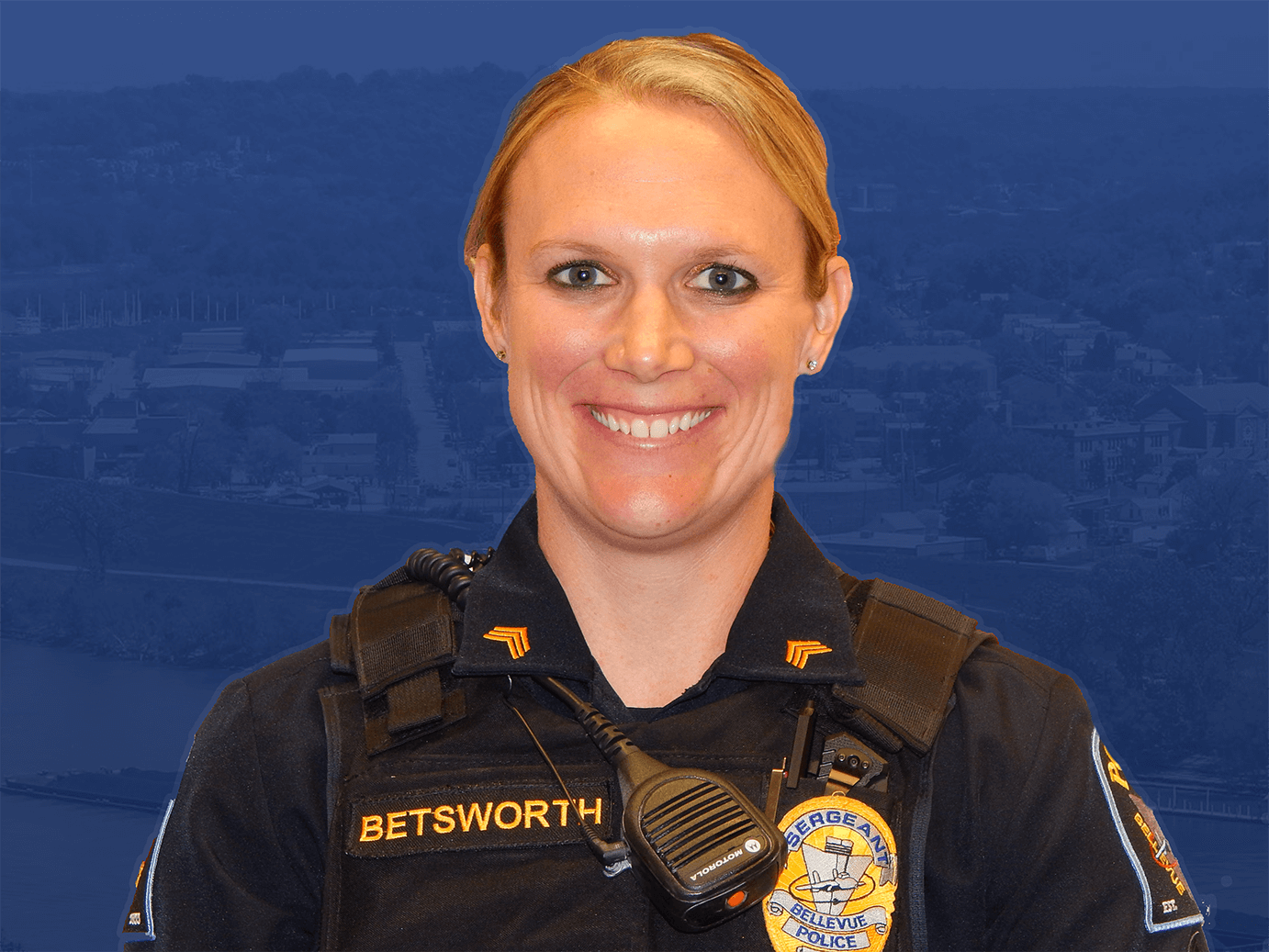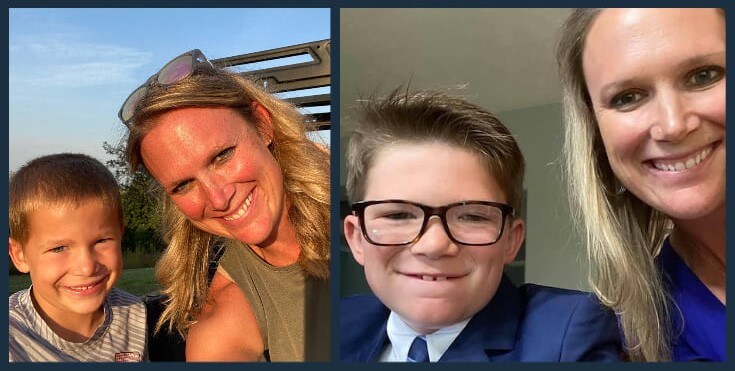Sergeant Lindsey Betsworth
Bellevue Police Department
Bellevue, Nebraska

Why did you become an officer?
I wanted to help people from all walks of life. I am always up for a challenge, and love that this job allows me to do something different every day, and I get to have an impact on the community. I also enjoy the fact that when you are a police officer, you take on a wide variety of different careers. One day you might be a doctor, counselor, friend, teacher, nurse, coach, chaplain, lawyer, or problem solver.
I also went on a few ride-alongs with different police departments before I tested to become a police officer, and knew that this is something I would enjoy doing. The variety of different types of specialty units within law enforcement also attracted me to this career.
What motivates you to succeed?
Good leadership within a department and helping my peers with a case or on a personal level motivates me to succeed. I have learned from some of my great supervisors to empower your coworkers and lead by example. Certain supervisors helped me to get to where I am today, and I want to follow their type of leadership. I think it is important to have some knowledge of where our officers see themselves in the next few years, and if I can help them get there, I am willing to do that. As a police officer and mom, a supportive work atmosphere, family-friendly department policies, and variety of different units within the department also motivates me to be successful.
 Sergeant Betsworth with her sons.
Sergeant Betsworth with her sons.
What challenges have you faced as a woman officer?
I’m a full-time working mom. I was pregnant and had two sons while employed with the police department. However, our agency did not have a pregnancy policy when I first became pregnant in 2011. I wasn’t allowed light-duty work after 16 weeks of pregnancy, and I ended up starting a federal lawsuit against the department to pave the way for future women officers who wanted to have children. Thankfully, I was represented by the police union’s attorney, and my coworkers (who were mostly men) donated their sick time to support me during my pregnancy. Without their support, it would have been even more difficult to bring about this necessary policy change. When we settled the lawsuit, other officers and I pushed for a new pregnancy policy that was separate from the light-duty policy, to make sure pregnant officers could take the time they needed without having to borrow sick time. This new policy was finally created nine years later, in March 2020.
Though our agency is actively recruiting women, we need more women in law enforcement generally. At times, departments must rely on other agencies because they do not have a woman officer working. This is especially necessary when dealing with victims of sexual assault or domestic violence. If the victim is requesting to speak with a woman officer, I want our department to have one or multiple women on that shift.
We also need more mentoring for new officers. This is very important, but we didn’t have a program in my department when I started in 2006. Now, we have a mentoring program for new hires, where mentors (men and women) are matched up with new recruits to assist them during their first year of training.
What’s your most memorable moment on the job?
When I was a rookie cop, I was dispatched to work a child sexual assault case. The victim—who I prefer to call a survivor—requested to speak with a woman officer. I was up for the challenge, and conducted a thorough interview with her. I worked this case for most of my twelve-hour shift, which included a removal of the survivor from her home. Ultimately, this case resulted in an arrest, and conviction of the suspect.
Throughout the year, the survivor’s mom would call dispatch and if I wasn’t too busy, I would stop by and meet with her if she were too much (behaviorally) for her mom to handle. One night I stopped by, and we ended up playing catch since we both had an interest in sports. I would tell her how proud I was of her and how far she had come with everything she has been through. I felt during that year that I was meant to be there for her. The resiliency and strength she showed still amazes me to this day.
Ten years later, I received a message to call the survivor’s mother. She wanted to tell me how grateful she was for the hard work and time I put into her daughter’s case. She also told me her daughter would be graduating in less than a week from a police academy, and my relationship with her during her case was a big reason why she wanted to become a police officer. With the assistance of the Bellevue Police Officer’s Association and the Bellevue Police Department, I was able to fly out and attend the graduation.
What advice do you have for women considering the police profession?
I am coming up on 15 years in April of being a police officer with the Bellevue Police Department. I am a wife, a mom, a sister, and a daughter. You can do this job. I know some women worry about their size, or if policing is too physically demanding. I am not the smallest or the strongest in this department. If you can pass the physical fitness test and or train to pass it before the academy starts, you will be fine.
Women have shown (and research supports) that we are better at minimizing use-of-force situations and practicing de-escalation techniques. Women have incredible communication skills. The majority of what we do in law enforcement is talk to people. When we do, it might be in a time of crisis, and we are there because people need us. You can go far in this career if you can talk to people, no matter what their background is, and treat them with respect.
At times women can be their own worst critics, but believing in yourself and taking the training seriously is second to none. I know in law enforcement we tend to call ourselves the biggest “brotherhood” across our county. However, I like to also call it a “sisterhood” too.
How we’re changing policing
The 30×30 Initiative is a coalition of police leaders, researchers, and professional organizations committed to advancing and supporting the representation, experiences, and well-being of women at all levels of law enforcement, both in the U.S. and beyond.
Research shows that women play a crucial role in building community trust, de-escalating conflict, and improving public safety outcomes, with evidence linked to reduced use of force and enhanced relationships with the communities they serve. However, women represent less than 14% of sworn officers and 20% of recruits in state and local law enforcement agencies. Additionally, about 40% of the approximately 18,000 law enforcement agencies in the U.S. have no full-time women officers (Source: Bureau of Justice Statistics).
We are collaborating with hundreds of agencies to make law enforcement a profession where qualified women who are drawn to it feel welcomed and supported while ensuring agencies address their unique needs and foster their success.